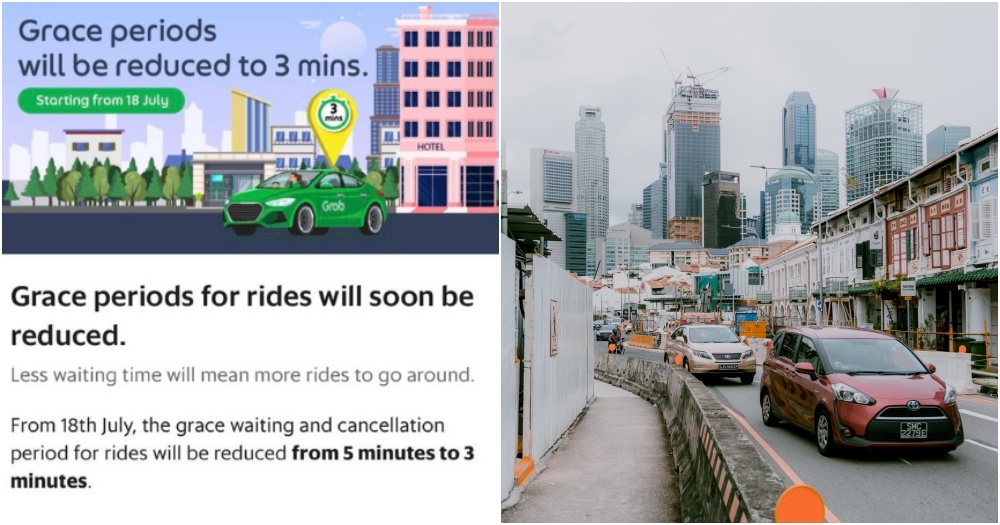Follow us on Telegram for the latest updates: https://t.me/mothershipsg
Grab's move to shorten its waiting and cancellation grace periods before charging a penalty is its "own commercial decision", said Transport Minister S Iswaran on Aug. 2, who added that the government does not intervene in the setting of fares for the point-to-point (P2P) transport market.
On Jul. 11, Grab announced that it would be cutting its grace period from five minutes to three, for most car types.
The new policy then kicked in on Jul. 18, and caused an uproar among some Grab customers, who complained that it was "ridiculous".
Operators required to publish all fees clearly, must give public "sufficient notice"
Iswaran was responding to two parliamentary questions filed by Bishan-Toa Payoh GRC Member of Parliament (MP) Saktiandi Supaat and Sembawang GRC MP Mariam Jaafar, who asked what the government's role was in supervising ride hailing platforms and their ability to unilaterally change their fee structures.
They also asked if a minimum period was required between the fee change announcement and its implementation.
In a written reply, Iswaran said that while the government does not intervene in the setting of fares, it requires operators to state and publish all fees clearly, including any additional charges to be levied.
Licensed ride-hailing operators must also give commuters "sufficient notice" by announcing any changes in schemes and fees to the public at least seven days ahead of implementation.
Grab's announcement adhered to regulations
Iswaran said that Grab had announced the changes to its fee structure seven days prior to implementation, as required.
He also added that Grab's move was "its own commercial decision and may differ from that of other P2P operators".
In response to a question about regulating the number of ride-hailing platforms in Singapore, Iswaran said that there is no regulatory limit.
He added that the government's regulatory approach was to facilitate "an open, safe and contestable P2P market in the transport sector".
P2P operators with more than 800 vehicles are required to be licensed, and all operators must comply with safety-related regulations.
These operators can then compete to meet different types of demand with attractive fare structures, he added.
"Our regulations focus on ensuring the safety of P2P drivers and commuters, and that fares are transparent and clearly communicated to commuters," said Iswaran.
Top photos via Grab app and Unsplash
If you like what you read, follow us on Facebook, Instagram, Twitter and Telegram to get the latest updates.
